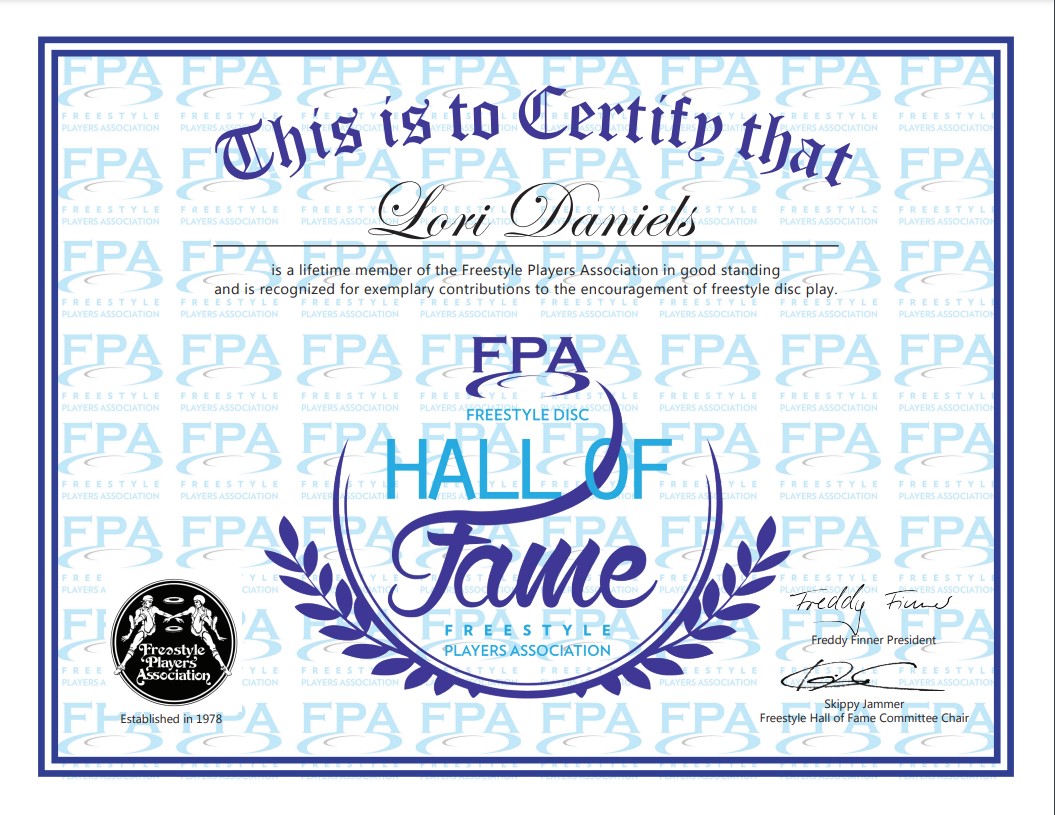Dear FPA members and jammers,
.
As you might have read already from Ryan’s post on the Freestyle Frisbee groups on Facebook (https://www.facebook.com/groups/freestyle.frisbee), a new ranking and rating system are under development.
.
It’s not a finished product yet and it won’t be officially used until it will be ready: we still need to figure out how to implement it or use it officially in the future, but as for now it looks very promising.
.
We thank Ryan for his hard work as this project goes along with our goals announced before being elected: investigate whether there might be a ranking or rating system that can reward different formats and give more points of view on how good competitors are.
.
Please reach out to us or to Ryan directly (ryan@smilesair.com) if you have feedback, comments, or questions about this project.
.
Here is Ryan’s updates on the projects:
.
“ New Ranking and Rating system
Tournament results now exist in an online database. Past results have been backfilled from roughly 2013. A new Ranking and Rating formula is currently under development. The first draft of results can be viewed here (Ranking uses results from years 2018 and 2019): https://www.freestyledisc.org/rankings-new/. Explanation by James Wiseman below.
.
Ryan’s Future Roadmap: Roadmap
.
Technology is open source here: https://github.com/SmilesAir?tab=repositories
.
(1) Ranking System Explained
:
The ranking system is similar to the existing system. It ranks players based on their competitive results over a two-year period. Players receive ranking points based on how they perform at tournaments.
Each player’s ranking is based on tournament results from a maximum of 8 tournament divisions (not tournaments). This limit is designed to ensure the rankings reflect average competitive performance, rather than the number of tournaments a player has attended.
The amount of points a player receives for each tournament division depends on their placement in the division, the size of the division, and bonus multipliers for significant tournaments like Major tournaments and the FPA World Championships. The extra points awarded for the size of the tournament reflects the added difficulty of winning a tournament with more teams. The extra points awarded for significant tournaments reflects the added difficulty of winning tournaments that are attended by higher skilled and better prepared teams. (Please note that the new ranking system, unlike the old ranking system, does not include bonus points for beating higher ranked players. The new rating system–the Freelo system–better assesses how players perform relative to each other.)
.
The calculation of the distribution of rankings points starts with a calculation of the number of points the winning team receives. The winning team receives points based on a simple calculation:
Number_of_Players * kFactor + Bonus_Multiplers
(kFactor = 5; The kFactor serves to _________ )
Teams below first place receive some lesser portion of the maximum points awarded to the winning team. The portion those teams receive is calculated using an exponential curve that distributes ranking points so that the last place team receives around 1 point.
As an example, if there are twenty players in a pairs division (10 teams), the points are distributed as follows:
Place | Points
1 | 100
2 | 56
3 | 32
4 | 18
5 | 10
6 | 6
7 | 3
8 | 2
9 | 1
–
(2) Freelo System Explained
.
The rating system uses an Elo rating system, the “Freelo System.” The Elo rating system is a method for calculating relative skill. It was developed originally for chess, but it is now widely used.
In an Elo system, each player has a rating that reflects their skill level. At the beginning of an Elo system every player starts with the same rating. As players win against each other, the higher skill players earn more Elo. After every contest between players, the winning players take points from the losing ones.
The difference between the ratings of the winner and loser determines the total number of points gained or lost after a game. If the higher-rated player wins, then only a few rating points will be taken from the lower-rated player. However, if the lower-rated player scores an upset win, many rating points will be transferred. The lower-rated player will also gain a few points from the higher rated player in the event of a draw. This means that this rating system is self-correcting. Players whose ratings are too low or too high should, in the long run, do better or worse correspondingly than the rating system predicts and thus gain or lose rating points until the ratings reflect their true playing strength.
Traditionally, Elo systems are used in endeavors that involve head-to-head (one-on-one) matches. The freestyle rating system has been designed to apply Elo principles in a manner that incorporates non head-to-head tournament formats.
In the Freelo System, head-to-head matches are simulated by treating a higher ranked team as winning a head-to-head match against every team below them. (If two teams do not make the finals, but achieve the same rank in their respective pools, they are treated as if they tied.) Accordingly, in a four team pool would be treated as follows:
.
Place | Team | Result
1 | Team A | A beats B, A beats C, A beats D
2 | Team B | B beats C, B beats D
3 | Team C | C ties with D
3 | Team D | D ties with C
“
.
Ryan’s timeline for the future:
- High Priority/Next on the list
- Document all results related microservices
- So other people can use the central data like having a list of all the player names
- Github of code: https://github.com/SmilesAir?tab=repositories
- Implement a data dump
- Allows anyone to get all the data stored in the online database in a nicely formatted object.
- This allows for someone to easily take over the results process if Ryan should quit.
- Document all results related microservices
- April 2022
- Electronic judging system runs on Mac and PC.
- Solution to avoid the network setup problems.
- Firewall blocking traffic between head judge and phones
- July 2022
- Update Competition Manual for 2020 system.
- August 2022
- Electronic Judging system polish for FPAW
- 2023
- New Ranking formula
.



